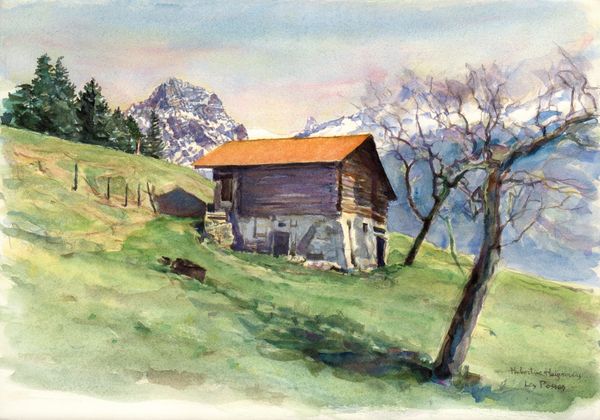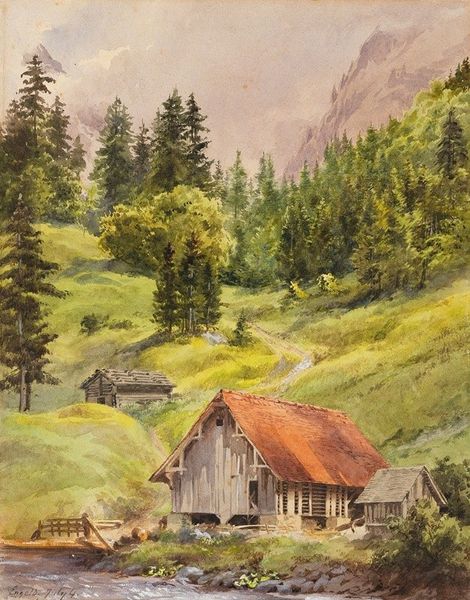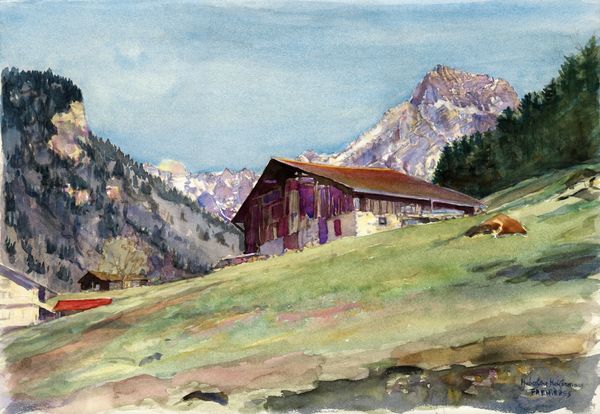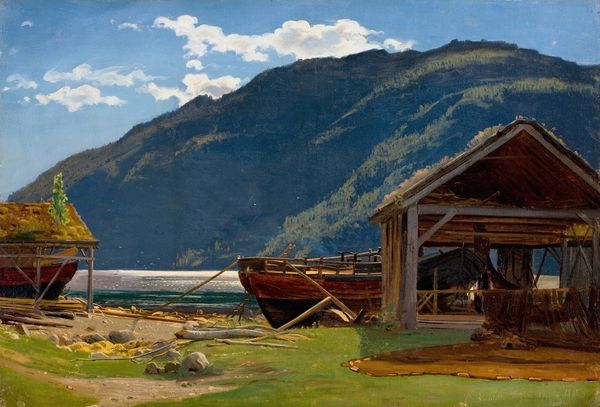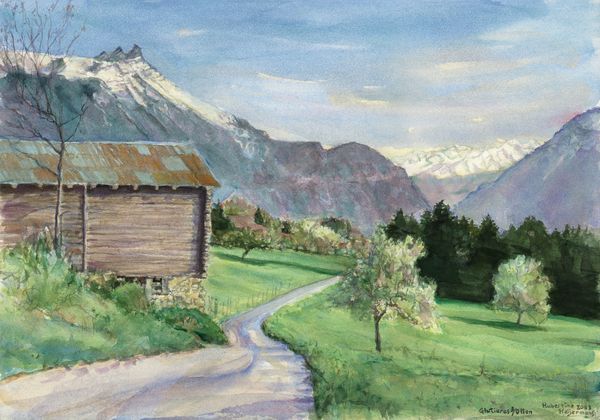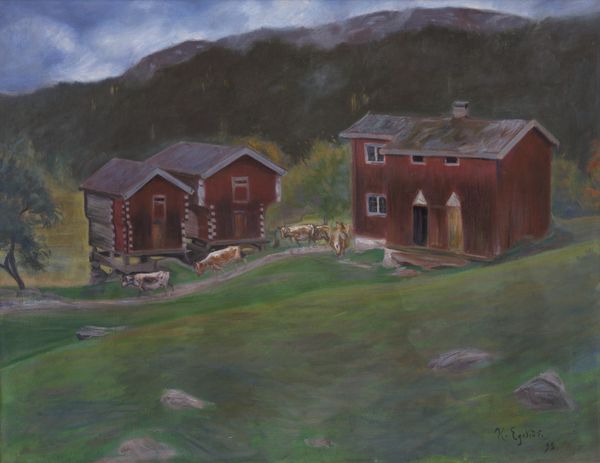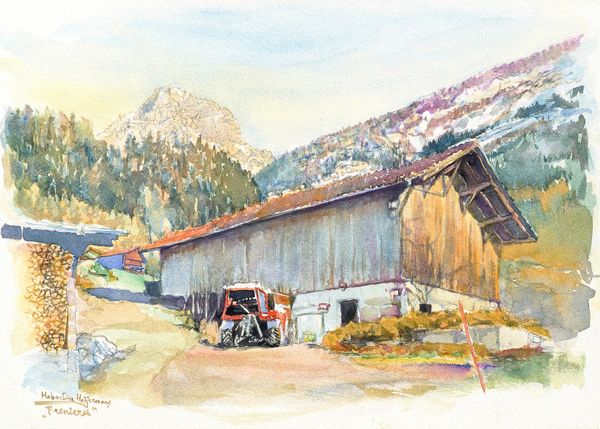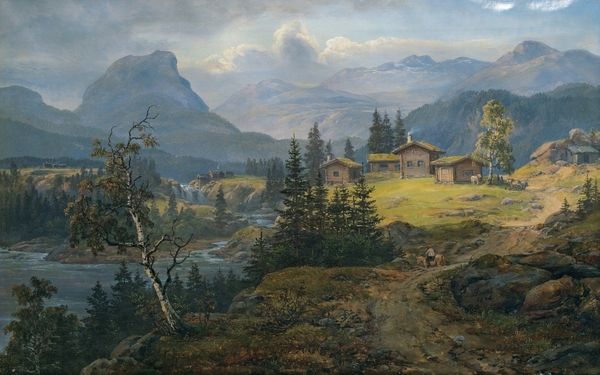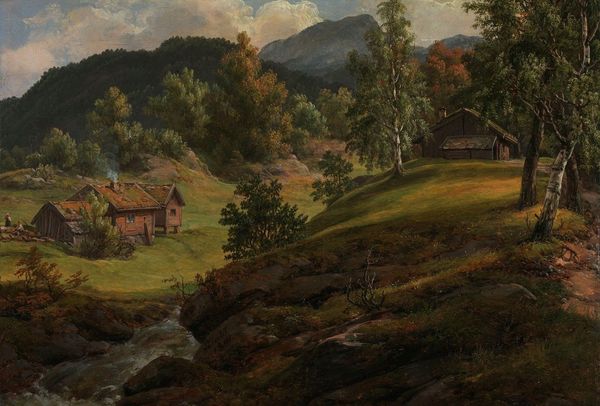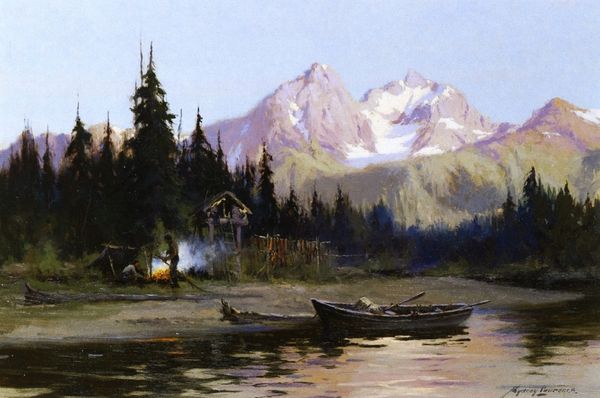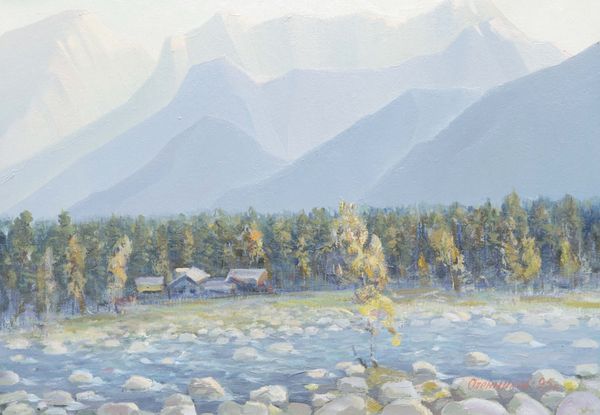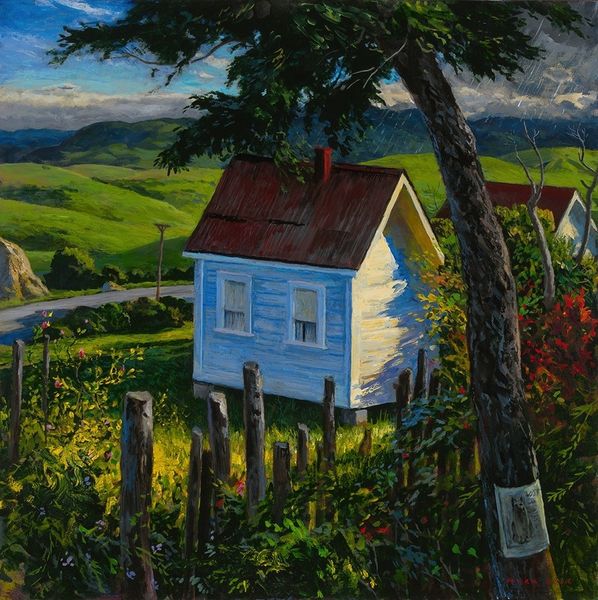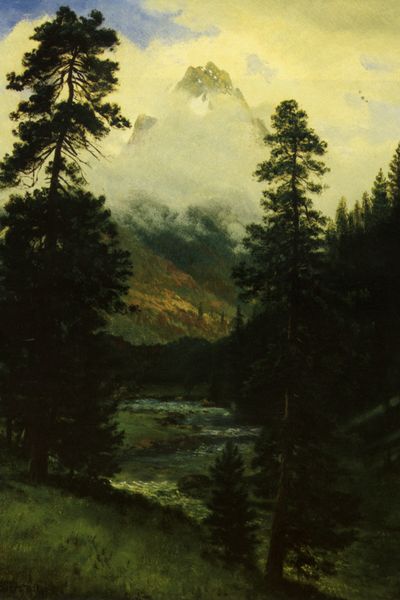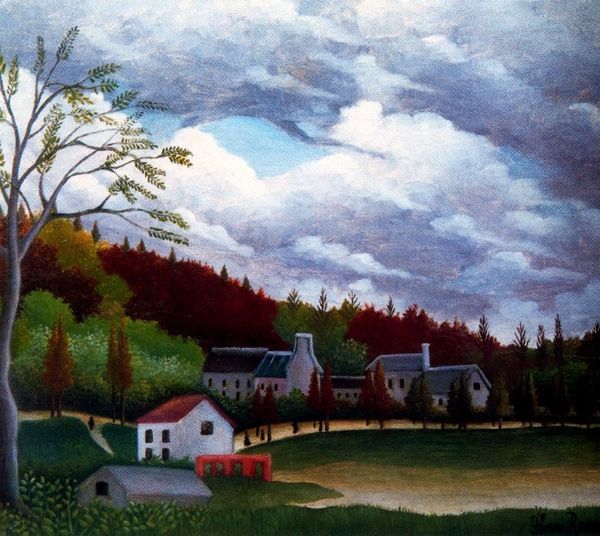
Dimensions: 52.39 x 66.99 cm
Copyright: Public domain
Curator: This is Albert Bierstadt's "Fishing and Hunting Camp, Loring, Alaska," painted in 1889. It exemplifies plein-air techniques and reflects his signature Romantic style. Editor: The composition is interesting. It's as if Bierstadt is using the reflective surface of the water as a mirror, doubling the image and adding depth, while a subdued palette cultivates a peaceful, somewhat somber mood. Curator: Absolutely, and we should consider Bierstadt's career within the context of Manifest Destiny and the romanticized views of the American West. These landscapes promoted colonial expansion, often overlooking the violent displacement of Indigenous communities. What's your read on this in terms of how land becomes a commodity? Editor: Well, the interplay of light and shadow—particularly across the architecture and foliage—certainly emphasizes texture and form, drawing the eye in and allowing our senses to appreciate detail and nuance; and I appreciate how Bierstadt masterfully balances tonal variations in water, land, sky and structure to develop the painting’s harmonic and tonal qualities. Curator: Consider though, how that same skill of creating detail and "realism" also aestheticizes the incursion of settlers and capitalist enterprise on untamed lands and original inhabitants. The artist normalizes such activities by including them in a sublime setting. Editor: That may be a valid sociopolitical point, but as I focus my attention on pure pictorial components, such contextual layers begin to recede to me. What’s left is visual construction and appreciation of its aesthetic success. Curator: Still, I would posit that ignoring these sociohistorical factors limits a comprehensive reading of the artist's oeuvre. This artwork presents the paradox of beautiful and destructive landscapes. By acknowledging historical context we are empowered with new visions and readings that extend well beyond any "purely visual" approach. Editor: Perhaps both perspectives provide us with valuable, yet distinct, lenses for appreciating its value. Curator: Indeed, prompting vital conversation as well, I hope.
Comments
No comments
Be the first to comment and join the conversation on the ultimate creative platform.
